This post may contain affiliate links. Please read our disclosure policy.
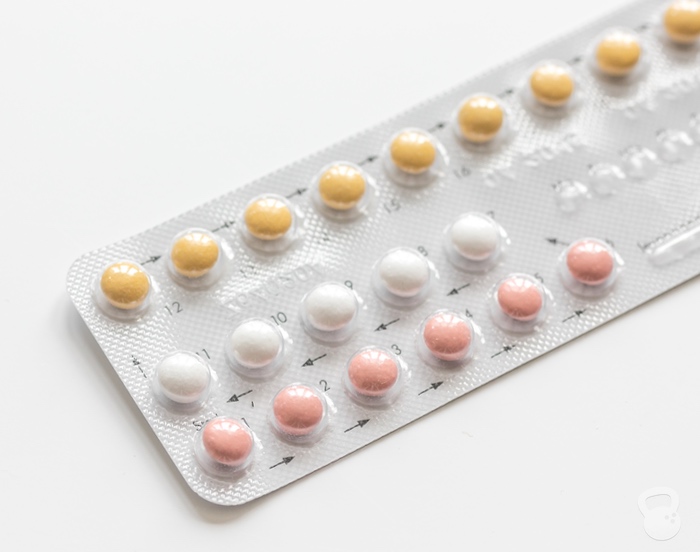
So, you’ve decided it’s time to transition off of hormonal birth control pills.
Maybe you’re ready to try for a baby (congrats!). Or maybe, you’re just sick of the side effects of hormonal birth control, also known as the Pill. Or you might just be curious about what it feels like to be off the Pill, having been on it long-term (many women spend 10 or more years on the Pill!).
But stopping birth control isn’t as simple as throwing out your pill pack. The Pill is a prescription medication that greatly impacts your body. And for some women, the decision to quit birth control is quickly reversed. Stopping the Pill can mean heavy periods (or missing periods altogether), severe acne, weight gain, bloating, and serious PMS.
The side effects caused by quitting birth control pills are collectively known as Post-Birth Control Syndrome. But, it doesn’t have to happen to you.
So, how do you transition off hormonal birth control without side effects? There are many things you can do right now to balance hormones naturally even while you’re still taking the Pill.
Jump to:
What You Need To Know Before You Stop Taking the Pill
Before you stopping taking birth control pills, you need to know how the Pill actually works. The Pill stops pregnancy by preventing ovulation (the monthly release of an egg by one of your ovaries). If you don’t ovulate, you can’t become pregnant.
Ovulation is what triggers your period. So any “period” you have while on hormonal birth control isn’t a real menstrual cycle. It’s technically what is called a “withdrawal bleed” and is a result of your body withdrawing from the synthetic hormones in the pill when you take the placebo pills. Some women don’t take the placebo pills and stay on the active pills all month long, and don’t experience monthly bleeding.
Ovulation triggers the production of sex hormones. The birth control pill contains synthetic versions of these hormones to replace those not created during ovulation (and to prevent ovulation from occurring).
Your goal when stopping birth control is to restore ovulation and get your natural cycle back.
Even if you don’t want to get pregnant now, anytime soon, or ever, it’s important for your body to ovulate every month while you’re of reproductive age. Ovulation is a major player in hormone levels throughout your body. And those hormones control everything from your hair, skin, and nails, to your mood, and even your metabolic health.
Regular ovulation in your fertile years can also help prevent cancer, osteoporosis, and heart disease later in life, too. This is why it’s important to prioritize regaining ovulation after stopping the pill, no matter what the reason is you decided to stop birth control.
Birth Control Side Effects
Birth control pills work by stopping ovulation and replacing natural hormones in your body with synthetic versions. Taking birth control can result in a variety of side effects, including:
- Irregular or heavy bleeding
- Digestive problems (IBS, SIBO, and leaky gut)
- Microbiome disruption
- Increased risk of blood clots
- Increased risk of gallbladder disease and gallstones
- Thyroid and adrenal dysfunction
- Weight gain
- Mood swings
- Increased risk of depression and anxiety
- Nutrient deficiency
- Low libido
- Skin issues like dryness, acne, and oiliness
- Hair breakage, brittleness, and loss
- Increased risk of diabetes
- Increased risk of autoimmune disease
- Increased risk of heart attack and stroke
- Increased risk of breast, cervical, and liver cancer
These side effects swing from mildly annoying to life-threatening. Unfortunately, most women taking hormonal birth control pills don’t know about the majority of these side effects.
And while they are side effects of taking the Pill, stopping the Pill doesn’t mean they all go away. Thyroid and adrenal dysfunction, increased risk of disease, mood disorders—those can all stay with you long after stopping birth control pills. This can all be a part of Post-Birth Control Syndrome.
What Is Post-Birth Control Syndrome?
Post-Birth Control Syndrome (PCBS) is the name given to a cluster of symptoms some women experience after transitioning off the Pill.
You should know right away, if you go to your doctor to talk about Post-Birth Control Syndrome, they might look at you funny. PCBS isn’t a formal medical diagnosis and some doctors still aren’t unaware of it.
But that doesn’t mean they aren’t aware many women deal with symptoms after quitting the Pill like:
- Absent periods (amenorrhea)
- Infertility
- Irregular periods
- Heavy periods
- Severe PMS/PMDD
- Acne
- Weight gain
- Menstrual cramps
- Bloating
- Mood swings
- Nutrient deficiency symptoms
You might have experienced some of these symptoms before you went on the Pill. But you may also be experiencing some of them for the very first time.
Acne, PMS, and cramps worse than high school when you’re in your 30s? It’s not fun, but it’s a reality for many women!
Why Does Post-Birth Control Syndrome Happen?
Post-Birth Control Syndrome occurs because hormonal birth control “turns off” your body’s production of sex hormones. (Remember, it replaces them with synthetic versions instead.) When you quit taking the Pill, it can take time for your body to turn back on and get back to optimal hormonal function.
As your body detoxes the synthetic hormones and begins production of natural hormones, you may have periods of hormone dominance or imbalance. This can take go on for anywhere from a few months to years.
But there’s another common reason PCBS happens: Hormonal birth control is often prescribed for managing hormonal problems like PCOS or irregular periods.
The problem is, hormonal birth control does not help to balance hormones naturally. It’s sort of like putting concealer all over a blemish. It covers the problem up (for the most part), but when you wash the concealer off at the end of the day, the blemish is still there.
Whether you started taking the birth control pill for acne, heavy periods, cramps, or severe PMS, it will still be there when you stop the Pill. And those symptoms may now be worse.
But, the Pill isn’t your only hope, and there’s a lot you can do to prevent this from happening before you get off the Pill if you chose to.
How To Prevent Post-Birth Control Syndrome
First, not every woman who takes hormonal birth control will experience Post-Birth Control Syndrome. Some women start ovulating as soon as the first month after quitting the pill. The better your overall health when you started and stopped the pill, the more likely you are to have no (or very mild) Post-Birth Control Syndrome symptoms.
But, especially if you went on hormonal birth control to treat symptoms in the first place, you’re likely to need some support as you transition off. There are things you can do before you quit the pill and after to make the change easier.
Choosing a New Contraceptive
Before you transition off the Pill, you need to have another contraceptive plan in place (if you’re using the Pill for contraception currently).
I love the Fertility Awareness Method (FAM) for both tracking your cycles to prevent and plan for pregnancy, but it won’t be reliable as a contraceptive until you’re ovulating and have a regular menstrual cycle again. Barrier methods (like condoms or the cervical cap) are my first choice for non-hormonal contraceptives when FAM isn’t an option.
If You Don’t Want To Quit Birth Control Pills
Not everyone wants to quit the Pill—and that’s totally fine.
Every woman has the right to decide what is and isn’t appropriate for her body and well-being. No one will ever be more of an expert on your body than you are!
If you decide to continue (or start) hormonal birth control, you can still use the information in this post to keep your body as healthy as possible while you’re on the Pill and support you when you do eventually transition off (either due to age or desire to conceive).
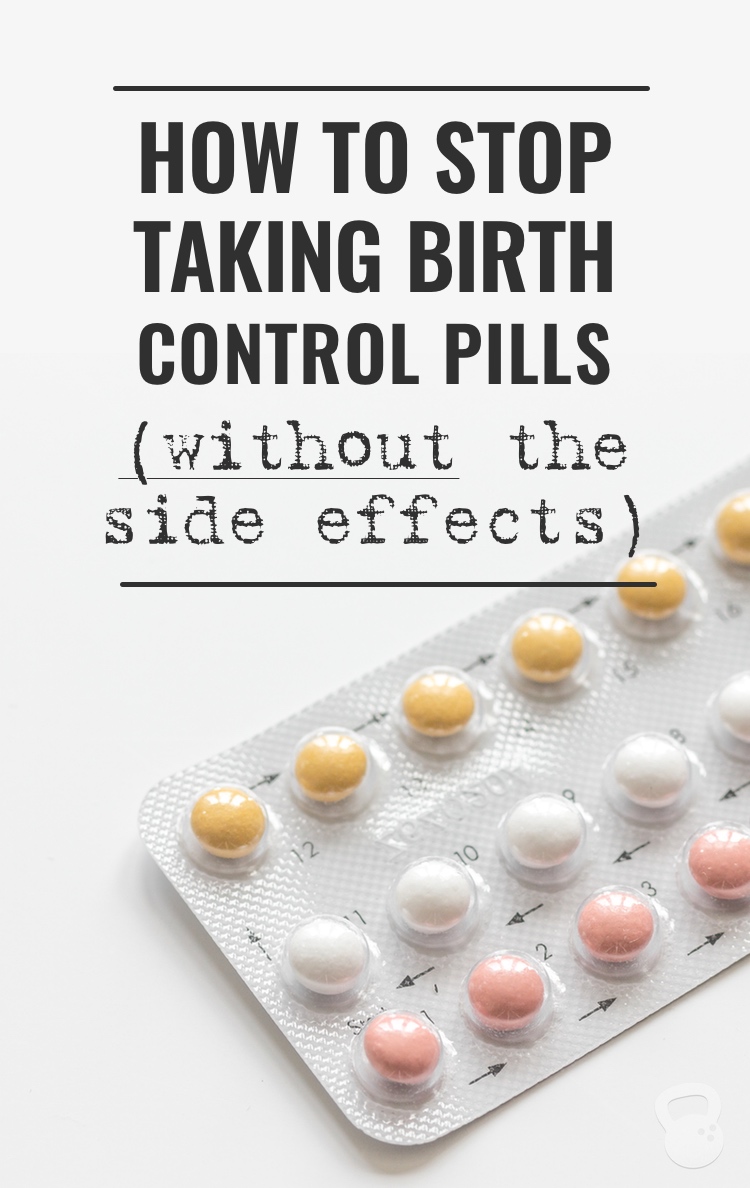
How to Support Your Body Before You Stop Taking the Pill
If you’re ready to start transitioning off hormonal birth control, you can start right now, but that doesn’t mean you should stop taking the Pill today.
If you’re taking hormonal birth control for contraceptive reasons only—not because of hormonal issues like acne or PCOS—start the recommendations in this post right now, but finish taking all the pills in your current pack.
If you’re taking the Pill to treat hormone symptoms like acne, PCOS, heavy or missing periods (or any reason other than contraception alone), start the recommendations in this post at least 3 months before you quit birth control pills. After 3 months, quit taking the Pill and continue with the recommendations.
Following these recommendations will give your body all the resources it needs to allow for proper hormonal function when you do stop taking the Pill.
And a special note for women who are stopping hormonal contraceptives to get pregnant:
My friend and women’s health expert Dr. Jolene Brighten recommends women wait at least 6 months (and ideally a full year) after stopping birth control pills to begin trying to conceive.
This gives your body adequate time to restore nutrient levels (since the Pill is known to deplete nutrient stores), but more importantly, any hormone imbalances caused by the Pill will only intensify if you become pregnant before they’re resolved. That means you could be at higher risk of miscarriage or postpartum depression.
If you want to become pregnant a year or more from now, the time to start thinking about quitting birth control pills could actually be right now.
Here’s how to transition off hormonal birth control without Post-Birth Control Syndrome symptoms.
Step 1: Support Your Liver
Your liver is responsible for deactivating and eliminating excess hormones.
When you stop taking hormonal contraceptives, your liver must detox all the synthetic hormones out of your body in order to trigger your body to start creating natural hormones again. The faster you detox the synthetic hormones out, the sooner your body can return to a natural cycle.
You don’t need to do any crazy cleanses to make this happen. You can support proper liver function with these simple steps:
- Eat cruciferous veggies daily (broccoli, cauliflower, cabbage, bok choy, etc.)
- Eat foods rich in heme-iron (easily absorbed in the body) and B vitamins. Grass-fed meat and organ meats are the perfect source of these nutrients!
- Eat sulfur rich foods like pasture-raised eggs and onions
- Take a magnesium supplement (This is the one I use daily).
- Limit toxin exposure, which will reduce what your body is exposed to, and therefore what your liver has to process. Simple steps include choosing organic produce, using an air purifier in your home (I use this one), choosing safer personal care and cosmetics products, and using safer cleaning products (this is the brand I use personally)
Step 2: Give Your Body The Hormone Building Blocks
Your body makes hormones out of the food you eat. High-quality fat is especially important for hormone production. This is not the time for a low-fat diet, but you don’t need to go on Keto, either.
The best thing you can do to support hormone production is eat ample amounts of nutrient-dense foods rich in fat, protein, and carbohydrate. You can follow a higher carbohydrate or lower carbohydrate diet depending on what works for you (as described in my book, Coconuts and Kettlebells), but it’s important not to restrict calories or let your calories dip too low. Doing so can put more stress on your body during this time, which can result in chronic cortisol output and cascade into hormonal imbalances.
Yes, some women gain weight on the Pill and then lose it when they stop taking it. But some women gain weight in the time period immediately after stopping the Pill.
If that happens to you, the worst thing you can do is panic and start over-exercising or restricting food (because stress). Health is not a number, nor is it a destination. Instead, understand that this is part of the healing process, and your body will normalize after a period of time.
Of course, it’s also important to avoid inflammatory foods like vegetable oils, processed sugar, and foods you know trigger you, like dairy or gluten. This will help reduce cortisol, strengthen your immune system, and support gut health, which is incredibly important for hormonal balance (see next step!).
And while it’s not the sexiest recommendation, the other big building block for hormones? Sleep. Hormone balance is intricately linked to your shut-eye. Aim for more than 7 hours per night, and go to sleep before 11 PM to keep your circadian rhythm on a cycle that supports hormone balance.
Step 3: Replenish Nutrient Deficiencies & Support Your Gut
The birth control pill depletes the body of key nutrients, including B vitamins, magnesium, selenium, zinc, and antioxidants. These nutrients are crucial for important bodily processes, like balancing hormones and supporting the liver’s detoxification pathways.
Perhaps even more concerning, the Pill also has a negative impact on the gut microbiome.
Some experts suggest the birth control pill can be just as damaging to your gut microbiome as antibiotics. While people are only prescribed antibiotics for a short time, many women are on birth control pills for decades.
To help restore depleted nutrients, it’s important to eat a nutrient-dense diet rich in foods that are high in B vitamins and minerals, such as grass-fed meat, organ meats, pasture-raised eggs, and leafy greens. Before and after you transition off the Pill, it’s also important to take a food-based prenatal vitamin supplement that contains folate to help boost your stores (this is the one I recommend).
I also recommend supplementing with high quality fish oil supplement (like this one), and a vitamin D3 + K2 supplement, which is an important and commonly depleted nutrient that helps minerals like iron be properly absorbed in the body (this is the one I recommend and use).
Finally, incorporating a probiotic daily can help support gut health. Adding fermented foods to your diet is also helpful, but should be done so in combination with a high-quality probiotic supplement during the healing process (like this one).
Finally, Go Easy On Yourself
Stress and anxiety are huge inhibitors to healthy hormones. Elevated stress hormones (like cortisol) can interfere and prevent healthy sex hormone production.
This is especially important for women who are stressed about trying to conceive!
Do everything you can to manage your stress well, including trying to reduce it. That means unfollowing people who don’t build you up, avoiding taking on unnecessary projects at work, and cutting out toxic relationships.
As you’re transitioning off birth control pills, I also recommend limiting your caffeine intake as much as possible. Caffeine can raise cortisol levels at rest.
And lastly, forgo the over-exercising! Exercise is great for hormone health, but intense or long-duration exercise isn’t ideal when you’re transitioning off the pill. Long walks are great (plus you’ll get some vitamin D!) and keep your intense workouts to no more than 3x per week.
When The Basics Aren’t Enough
For most women, following these suggestions is enough to help keep Post-Birth Control Syndrome symptoms under control, and return to a healthy menstrual cycle within 3 to 6 months of stopping birth control pills.
But if it isn’t enough for you, there are further steps you can take. However, hormone health isn’t something you want to mess around with or try and self-diagnose.
If you need more support here are some resources I recommend:
Taking Charge of your Fertility by Toni Weschler
Beyond The Pill by Dr. Jolene Brighten
And as always, I highly recommend finding a trusted practitioner who can work with you one-on-one about your concerns. I personally have always seen a midwifery practice for my women’s health care, and have always been well-supported in my concerns and decisions.
Say Goodbye To The Pill!
If you want to quit birth control pills, don’t let the fear of Post-Pill Syndrome hold you back! Remember, your body wants to function optimally. Getting there usually isn’t that complicated—it’s often about getting out of your own way and having a bit of patience. For more ways to optimize your hormone balance, check out How to Balance Hormones Naturally.
Have you tried stopping the Pill? What was your experience? Share in the comments below!
Be strong,

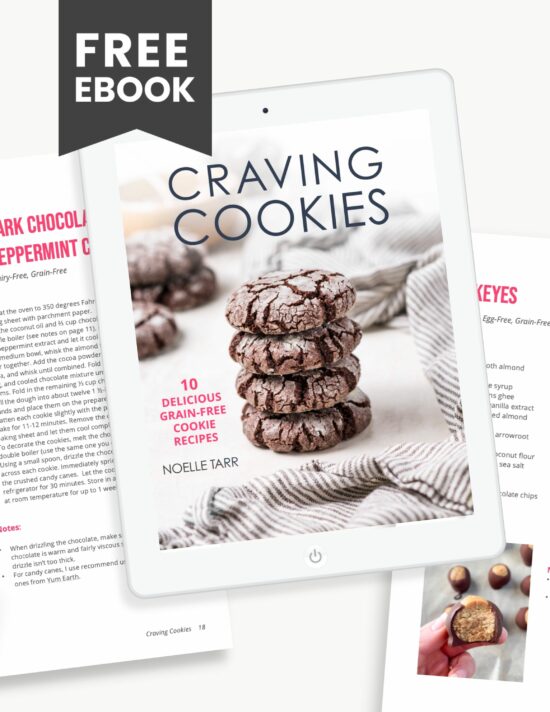
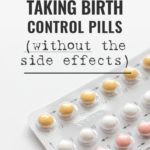
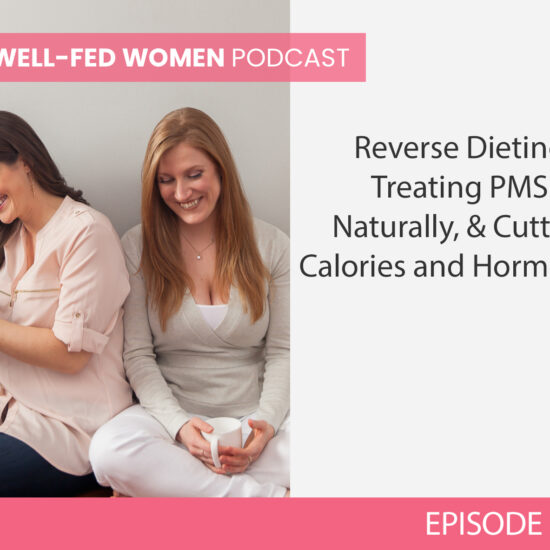
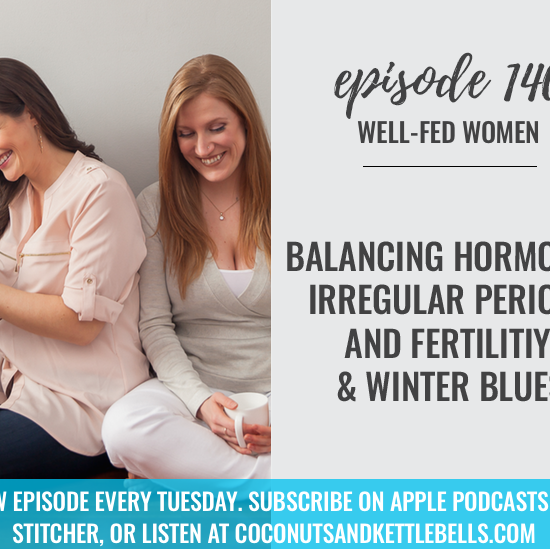
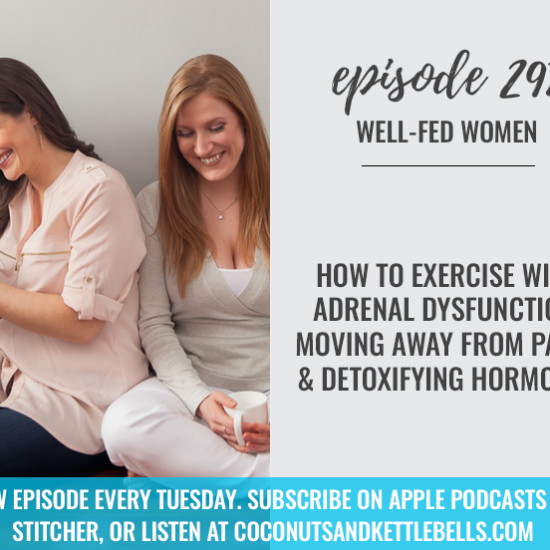
Annie Deutsch says
Thank you so much for this! I’m starting to come to terms with the fact I probably should come off birth control to truly heal my gut and manage my autoimmunity. It’s scary to think about what might happen when I come off BC, but the tips you laid out will set me up for success!
Elaine says
Just curious how the copper IUD (non-hormonal) affects your body? Is it safe?
Noelle says
It really depends on the person. For some people, it can result in high levels of copper in the body. For others, it works great. Definitely look into all the side effects and risks before making a decision. I personally did not have a good experience with it and ended up having it removed. I have successfully used FAM for the 9 years to prevent, and then get pregnant with both of my kids.
Krystal says
I JUST started taking the Pill this past month but have been experiencing some unpleasant side effects and this makes me want to come off of it. Should I still wait the 3 months to prepare my body to come off of it, since I just started?
Noelle says
No—if you just started taking it and are noticing symptoms, I would talk to your doctor and consider stopping as soon as you’d like.
Best Gynaecologist in Delhi/NCR says
Thank you for sharing this information
Anna says
This was so helpful! I’ve been on the pill for the last almost 9 years…I am 30 now. My skin looks great, weight is great, but my hair is falling out, and my gut health is not anywhere near where it should be. My adrenals are also shot! I am planning to gradually get off the pill in the next 3 months. I am terrified because of my hair loss, that when I get off the pill I will lose even more hair. I will definitely take all these tips and use them. I am just hoping for the best!
Noelle Tarr, NTP, CPT says
Thanks for sharing Anna. Definitely look into some of the resources provided, including my podcast with Dr. Jolene Brighten!
Patricia says
I stopped taking the pill ( first on it to manage PCOS ) after a period of almost 20 years.
I stopped taking it back in Nov 2020 and had only a period on the following month. My endocrinologist prescribed a hormone tablet, provers, for 10 days once every 3 months so that I have a bleed at least every few months.
Any recommendations? I am 38 years old and I have never had regular periods. Also, have an underactive thyroid.
Thank you!
Abby says
Hi! Thank you for this informative article. Is all this information about the pill and hormones true for the progesterone only pill as well?
Noelle Tarr, NTP, CPT says
Hey Abby! Generally speaking, yes. With the progesterone only pill, you may have fewer side effects, but it is still the synthetic version of the hormone progesterone.